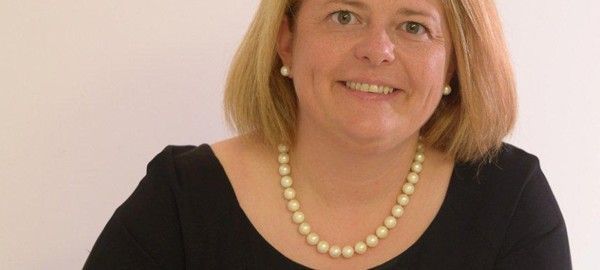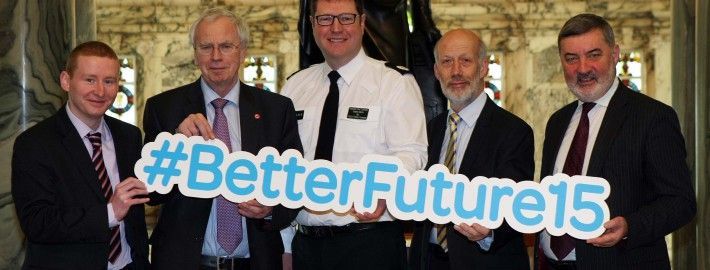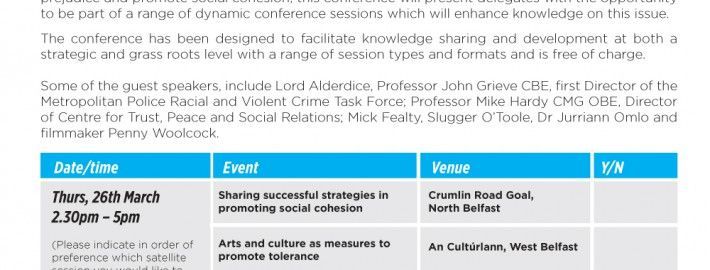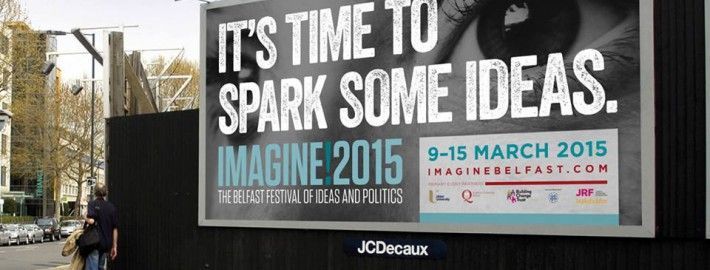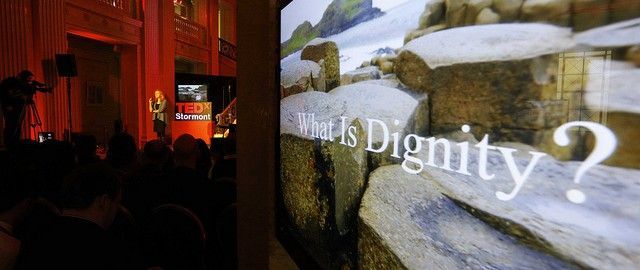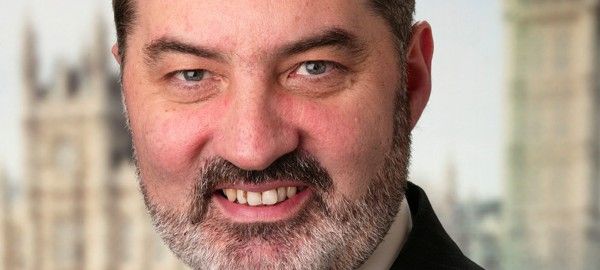We cannot begin to tackle hate crime and bigotry without a shared vision
A young Lithuanian woman has been left to pick up the pieces of her business – a nail bar in east Belfast – following a racially-motivated arson attack, which left the small business burnt to the ground.
This sickening attack follows on the heels of incidents in north Belfast, where Polish residents were targeted because of their race.
A few days ago, the local media reported a 43% increase in hate-related crime incidents, following the attacks on members of the Polish community; it went almost unnoticed.
During his first historic visit to Northern Ireland the then US President Bill Clinton said: “Countries are just like people with their personalities, hopes and nightmares.”
So, using his analogy, I tried to imagine Northern Ireland as a person – an insecure teenager, rather aggressive on occasions, who finds it extremely difficult to take responsibility for his own actions and is constantly blaming others. He is spoiled rotten by the rich uncles in London and an older, not rich, aunt in Dublin. He is driven, fun-loving with a great sense of humour. He even shows major potential, yet he is still unsure about his own identity, worth and future.
The question I have now is this: as a society attempting to evolve from the dark days of the Troubles into a more multi-cultural country, how can we try to mature together? We cannot begin to address hate crime, bigotry and other social problems here without a vision or a shared sense of commonality. Differences are important, but common humanity matters more.
The problem is in Northern Ireland so much is fragmented. There is so much talk about “multi-agency approach” involving strategies and action plans, but it seems that very little progress is being made. I suppose it’s part of our fledgling society which is still trying to grow up.
Perhaps we all need to take a leaf out of President Clinton’s book. He did not talk about the old, bureaucratic and mediocre networks, but a new, creative approach to leadership.
We need a new approach if we want an inclusive society here. The world is changing – and so, too, is Northern Ireland.
Together, perhaps, we can turn the immature teenager into a tolerant and responsible grown-up.
Expert led hate crime conference expected to outline a ‘better future’ for Belfast
The key issue being explored by a range of partners at the ‘Towards A Better Future’ Conference taking place at Belfast City Hall today is how to make a positive impact on hate crime and promote Belfast and Northern Ireland as a place confident in the benefits of diversity.
Led by the Belfast Policing and Community Safety Partnership in association with the Centre for Democracy and Peace Building and supported by Unite Against Hate, Department of Justice, and Belfast City Council, the conference will play an important role in facilitating a citywide and regional conversation to promote social cohesion and tolerance.
Set against a backdrop of rising levels of hate crime and in particular levels of racist hate crime in Belfast, the focus of the conference will be to further develop the short/medium term work already underway and to begin the process of exploring how shared outcomes can be achieved.
The conference kicks off with a range of leading specialists in the field of hate crime and social cohesion sharing knowledge and expertise. There will then be sessions in different locations across the city, where delegates have the opportunity to engage directly with communities on how hate crime and intolerance affects them.
As part of these satellite sessions, Belfast and Northern Ireland will also have the opportunity to showcase its existing good practice with a wide and varied range of related case study presentations.
The final conference session will work with all delegates to develop an agreed platform for action going forward and the overall conference report will link to the development of “The Belfast Agenda” which is Belfast’s Community Plan.
Cllr Colin Keenan, Chairman Belfast Policing and Community Safety Partnership said today:
“The ‘Towards A Better Future’ conference will, in my opinion, be the start of a new era of tolerance and respect in our City and across our region”.
“Many immigrants come to Northern Ireland for work and the chance of a better life. That’s why it’s imperative that we, in positions of responsibility, make it our business to make them feel welcomed”.
“This conference will build on the great work of the Centre for Democracy and Peace Building, Queens University Belfast and Belfast PCSP, who jointly published a report dispelling common myths surrounding immigrants in our city.”
“On that point I want to thank all involved in this conference and praise them for their work. Together we can build a better future for everyone”.
Justice Minister David Ford MLA added:
“There is a responsibility on all of us to work towards a truly shared and inclusive society. My Department’s Community Safety Strategy recognises that a growing diverse society can bring challenges in how some people perceive a problem and react to it. If unchallenged, prejudices can grow and negative attitudes can be learned. These can manifest into abuse; intimidation; damage to property; and unfortunately physical injury.
It is important that we all unite in the message that hate and intolerance are not acceptable and that the society we aspire to is one which promotes equality and will challenge prejudices. I believe that reducing prejudicial attitudes driving hate is achievable but requires strong leadership and partnership working across the justice agencies, Executive Departments, local government and the broader voluntary and community sector. I therefore welcome today’s conference which makes a valuable contribution to that debate.”
Lord John Alderdice, Chairman of the Centre for Democracy and Peace Building added:
“The ‘Towards a Better Future’ conference aims to build on the excellent work already undertaken in Belfast and across the region to tackle prejudice and promote social cohesion. Bringing together the right mix of people, at the right time via a number of dynamic sessions we aim to promote wider knowledge of the issues and how to equip policy makers and those tasked with implementation through examples of good practice.”
PSNI Assistant Chief Constable Stephen Martin said:
“We take hate crime very seriously and actively investigate all incidents reported to us. Hate crime is wrong on all levels and the PSNI will do everything it can to protect and reassure the growing number of people from different backgrounds and cultures who choose to come to Northern Ireland to live, work or study. We know this type of crime can have a devastating effect on victims and we want to reassure everyone that we are committed to tackling this issue and playing our role in preventing these crimes occurring.”
In May last year we launched Operation Reiner, a co-ordinated investigation into a series of hate crimes across Belfast. Since then we have made 95 arrests and 46 have been charged. As this work continues – the message is clear – Actions have consequences. If you choose to demonstrate your hatred by attacking or abusing others we will investigate you and seek to bring you to justice.”
This conference provides a great opportunity to collectively look at what we can do together to tackle hate crime. Police alone cannot provide a solution. It requires a long-term, collective multi-agency response with the range of skills and perspectives necessary to build a safer, more confident society which welcomes diversity. By building strong partnerships empowered and capable to address the identified issues, we can start to get to the heart of the problem, providing long lasting solutions which increase awareness and confidence in all communities.”
Towards A Better Future
Belfast Policing and Community Safety Partnership (PCSP) and the Centre for Democracy and Peace Building are delighted to invite you to participate in:
“Towards a Better Future: Hate Crime and Community Cohesion Conference”
Building on the excellent work already undertaken in Belfast and across the region to tackle prejudice and promote social cohesion, this conference will present delegates with the opportunity to be part of a range of dynamic conference sessions which will enhance knowledge on this issue.
The conference has been designed to facilitate knowledge sharing and development at both a strategic and grass roots level with a range of session types and formats and is free of charge.
For more information please contact Katharine McCrum at mccrumk@belfastcity.gov.uk or by telephone on 02890270556.
New Festival Aims to Spark Ideas on Politics and Culture
Over 35 events at Northern Ireland’s first festival of ideas & politics during 9-15 March
The inaugural Imagine! Belfast Festival of Ideas & Politics was launched at Belfast City Hall today (11 February) by the Lord Mayor, Nichola Mallon and writer and performer, Nuala McKeever. The seven day festival features a packed programme of 37 events in 12 venues across the city and is supported by 20 partner organisations.
The festival is designed to celebrate and support the role of the citizen in political and cultural life. With talks, theatre, workshops, film, humour and lively debate, the festival will provide a unique opportunity for people to have their say and engage with some of the big issues impacting on our lives in a fun, dynamic way.
The exciting line up of speakers includes Steve Richards, BBC presenter and political commentator; Philip Coggan, author and columnist with the Economist; leading artist Rita Duffy; and local professors from Queen’s University and Ulster University such as Dave Archard, Arthur Aughey; Derek Birrell; John Brewer; Yvonne Galligan; Dagmar Schiek; and Peter Shirlow.
Other contributors include Lord Alderdice, Liam Clarke, David Grant, Margo Harkin, Tom Kelly, Paula McFetridge, Susan McKay, Duncan Morrow and Nicholas Whyte.
According to founder and Festival Director, Peter O’Neill:
“More than ever, our society needs to cultivate a culture which provokes imaginative ideas and ways of engaging with each other on the big issues of our time. We want to encourage participation from people not normally involved in political debate and stimulate a discussion on new ideas and activism. There’s something for everyone in our programme – most of the events are free and spread across the city. So join us in sparking some new ideas on politics and culture.”
The festival covers a wide spectrum of issues including, but not limited to, mainstream political debate. The touchstone topics in the programme, which are likely to be prominent in the forthcoming general election, include Voting and Identity; Dealing with the Past; Immigration; Gender Quotas; Faith & Politics; Young People & Democracy; Public Sector Reform; Charities & Politics; the post-election political landscape; and Peace Building & the Arts.
However, other events examine wider themes such as the threats to democratic processes; the right to have children; the public value of universities; the tension between free trade & social rights; and issues raised by audiences in a series of informal Café Conversations.
The programme also includes cutting-edge theatre from Terra Nova Productions; a special Tenx9 storytelling event on People Power; and workshops that explore identity and the visual manifestation of politics. In addition, a film strand, programmed by Queen’s Film Theatre, features some of cinema’s sharpest satires and the Great Big Politics Pub Quiz is resurrected for those who want to have some fun whilst raising funds for Amnesty International.
The festival is independent, non-partisan and non-aligned. Its aims are:
- To provide a high quality showcase for new ideas on politics, culture and activism in Northern Ireland
- To encourage the participation of under-represented groups in political/cultural debate and discussion
- To stimulate reflection and debate on difficult and controversial issues
- To promote free speech.
Dignity Leadership Training with Dr Donna Hicks, Harvard
The need has never been more urgent for people in leadership positions to be educated in matters related to dignity. The desire to be treated as something of value is universal; it is our highest common denominator. At the same time, we are all vulnerable to having our dignity violated, creating conflicts wherever human beings cluster—in families, communities, in the workplace and among nations. It is one of the root causes of conflict, yet it is rarely addressed when attempting to manage and negotiate a resolution to disputes. How can something so fundamental to the human experience have been neglected for so long? The Dignity Model, an approach to understanding the role dignity plays in our lives and relationships, addresses this powerful yet unexplored aspect of our shared humanity.
OBJECTIVES
The objectives of Dignity Leadership Training are the following:
- Understanding the basic components of Dignity Model:
- Working definition of dignity
- The evolutionary roots of dignity
- Ten elements of dignity
- Ten ways we violate our own dignity
- Understanding of the Impact of Dignity Violations and Honorings
- Developing Dignity Skills
- How to honor dignity
- How to defend your dignity when someone violates you
- How to take responsibility for violating others
- How to resolve conflicts with dignity
- How to reconcile conflict relationships
- How to create a culture of dignity within an organization
- How to identify and address the systemic indignities that are embedded in the structure of an organization
- How to work with groups within and across communities to promote dignity skills and awareness.
About Donna Hicks
Donna Hicks is an Associate at the Weatherhead Center for International Affairs, Harvard University. She has been involved in numerous unofficial diplomatic conflict resolution efforts including projects in the Middle East, Sri Lanka, Cambodia, Colombia, Cuba, and Northern Ireland. She was a consultant to the BBC where she co-facilitated a television series, Facing the Truth, with Archbishop Desmond Tutu, which aired in the United Kingdom and on BBC World in 2007. In addition to teaching conflict resolution at Harvard, Clark and Columbia Universities, Dr. Hicks conducts training seminars in the Dignity Model, a human-centred approach to rebuilding conflict relationships, in the US and abroad. She is the author of the book, Dignity: The Essential Role it Plays in Resolving Conflict, published in 2011 by Yale University Press. http://declaredignity.com
DATES AND VENUE
3 day training from Wednesday, 18 February to Friday, 20 February (9.30am – 1pm)
Graduation: Friday, 20 February (2.30pm – 4pm)
Belfast Castle
Antrim Road, Belfast BT15 5GR
MORE INFORMATION AND BOOKING
For bookings and more information please contact:
Aileen Turley
Telephone: 02890 270469
E-mail: turleya@belfastcity.gov.uk
This event is organised in partnership with North Belfast DPCSP, North Belfast Partnership and Intercomm and is supported by Community Relations Council.
Lord Alderdice speaking in a debate in the House of Lords on the role of soft power and non-military options in conflict prevention.
Moved by The Archbishop of Canterbury –
That this House takes note of the role of soft power and non-military options in conflict prevention.
Lord Alderdice (LD):
My Lords, like other Members of your Lordships’ House, I thank the most reverend Primate for securing the debate, but also for the manner of his speech and the leadership and encouragement he has given over quite a number of years to those of us who are interested in, and committed to, addressing conflict in non-violent ways. Many people from outside your Lordships’ House will read his speech and continue to be encouraged, as they have been in the past, by the approach that he has taken and by the active way he has engaged in these matters. I declare an interest as the director of the Centre for the Resolution of Intractable Conflict, based at Harris Manchester College, Oxford, and of a new centre we are developing in Belfast, the Centre for Democracy and Peace Building.
At the start, I want to make clear that, as someone committed to this kind of work, I take the strong view that military and security roles are extremely important. As the noble Lord, Lord West of Spithead, said, it is quite true that military options on their own, without what we are calling soft power, can lead to wickedness and tragic results. However, it is also true that soft power as we describe it can often be wholly ineffectual and sometimes little more than a description of a wish list.
If one speaks to those involved in, for example, policing and military operations in most parts of the world, thoughtful people in our own services will say repeatedly that there is no security solution to this particular dilemma but there is a security role. I make an analogy with my medical background. Pharmacology rarely cures problems but, without that back-up, psychology rarely leads to the kind of cure that we want to see. We have to contain the problems but not leave it there; we have to find ways of working through them. Sometimes we can stop when we have contained them, only to regret the fact that it all goes to pieces again. We have many examples of that.
I make it clear that in everything that I say—and I am going to focus on the non-military side, which is the subject of our debate—the military and policing role is critical. If there is one great failing of the United Nations system, apart from our difficulty in reaching agreements with each other, it is that its lack of capacity to implement its decisions means that increasingly our people look at the UN not as a force for hope for the future but as a disappointment and a broken reed. There are issues there about the appropriate use of force that need to be properly considered.
Other noble Lords have given us a list and a description of some of the important institutions of soft power in this country, and they are extremely impressive. The Commonwealth was mentioned by my noble friend Lady Williams of Crosby and the noble Lord, Lord Howell of Guildford, who is a stout defender of the importance of this quite extraordinary institution and network of relationships. Also mentioned was the British Council, which, tragically, is probably known much more widely in other parts of the world than in the United Kingdom, where it ought to be valued much more. The Foreign Office, the Department for International Development, the BBC and our English language have also been mentioned, but there are many others that have not.
It is interesting that your Lordships’ House has not been mentioned, yet it is a source of significant influence. A young colleague from Colombia was listening to a debate in your Lordships’ House earlier this week. He said, “You probably don’t think about it but there are other countries in the world that are probably going to implement the legislation that you have been discussing in five years’ time”—precisely because they look to this place because of the moral integrity that has, at least in better times, been a mark of this place. Gladstone was committed to democracy as,
“trust in the people qualified by prudence”.
I have always regarded the other place as “trust in the people” and your Lordships’ House as the qualification, “by prudence”—but the second is very important, too.
There are other elements that I would like to pick up. I do not want to focus on the institutions but, rather, on what is at the back of this. One is the notion of common law and the way we conduct ourselves. This is a remarkable contribution, but sometimes it is not well understood by liberals. Many liberal colleagues focus on the importance of creating law, institutions and regulations which hold people to important principles. The institutions themselves do not necessarily hold people to important principles, and in fact can mislead people into thinking that they are the key issue. Frequently, people come to me from other parts of the world asking for a description of the processes that we have and the institutions that we created in my part of the United Kingdom. I say, “I’m not going to tell you about that. You can read about that in a book—but simply adopting them won’t solve your problem”.
In the same kind of way, tragically, the European Union, of which I am strong supporter and defender, has in many ways lost its purpose. Why is that? It is because its purpose was to make sure that there was not another horrible war in Europe. All the things that we have put in place—the euro, economic co-operation and all the structures and bureaucracy, including the European Parliament—are for the purpose of making sure that we do not have another war. Yet, tragically, within Europe these institutions have themselves become the purpose for many people, and, sadly, many political colleagues see them as a way in which we can sit at the top table in political terms. That is not the purpose and it is one reason why the people of Europe are disenchanted—because that is not what it was about.
In the same kind of way, just because you pass a clinical room that says “Therapy Going On Inside” does not mean it is so just because there is a therapist and patient. They may simply be going through the motions. It is very important that we distinguish between the purpose of the enterprise and the mechanisms through which we can have things happen.
All of the things we have been describing are the mechanisms, so what is at the back of them? Common law helps us because it helps to facilitate relationships between groups of people. If one key thing came out of our experience at home, it was that finding peace was not about putting into place institutions; it was about dealing with historic disturbed relationships. We constructed a peace process that had three strands of three important sets of relationships and everything came after that. The key thing about common law, which distinguishes it from civil law in many ways, is that it looks to a degree of flexibility within structure that enables people to deal with relationships appropriately.
I will give an example from my own experience. We put into place certain rules and regulations for how the Assembly Chamber might operate in Northern Ireland, but it was clear that there were times when it was more important to give one group of politicians room and space than another. For example, if there was a big bomb in a nationalist area it was important to give more nationalists the chance to speak about it than unionists—and vice versa—rather than simply hold to a rule that says, “You have to have this number of minutes for this and this person”. If it was done in a context of concern and relationship, it was not only possible but an enrichment and people felt that something worthwhile was happening, whereas if we had simply stuck to the rules rigidly, everybody would have been frustrated. That approach, which is a characteristic of your Lordships’ House and of the culture of this country, is absolutely crucial.
If there is one thing that this country has lost over a number of years, it is a degree of confidence in its own culture and the things that are important about it. When we think about relationships between people we think about the personalities of those who are involved. In a way, the culture of our community is the personality of this whole country—the personality of the whole group. I do not mean the symbols of culture such as art, flags and all those kinds of things but the way of being in the world of our community and country—a way in this country that was characterised by a degree of stability, integrity, respect, ethical behaviour and rules that were there for the purpose of relationships, not in order to dominate relationships. It was characterised by an attitude and approach that was open, not nationalistic but international, and respectful of people with different faiths and different approaches.
However, that did not mean that the faith of the people in this country was something that they did not believe in because it was just one of many. On the contrary, it was that degree of certitude, commitment and faith that made it possible to be open to others who had a different approach. Maybe it was even the fact that this island was not invaded for most of a thousand years that gave us the possibility of having that kind of confidence and being outgoing to others. In a sense, some of this has been lost as people have begun to feel that it is all about everybody having the same values—and we do not. There are those cultures that promote female genital mutilation. I do not accept that such a culture should be allowed to survive and thrive. We should speak against it. We should not necessarily attack it militarily, but we should try to make a change and realise that our values have something very important to contribute.
I finish by speaking of two things. First, the most reverend Primate has shown great leadership. I will give an example of a place where I think religious leaders could do so. In Jerusalem, at the moment, there is a deep split between Jewish nationalism within the country and—largely but by no means exclusively—Islamic Palestinians. But Christians have a stake in Jerusalem. If His Holiness, the Ecumenical Patriarch and the most reverend Primate were together to say to the Israeli Government and Palestinians, “This is not just a fight between the two of you. We have a stake in this as Christians throughout the world”, you would change the psychological dynamic from a fight between two to a relationship with a larger body of people who have a say—not because they want to govern or to rule, and not because they want to send in the legions of His Holiness, but rather because they want to change the dynamic into something fruitful.
I shall finish by saying this. I have mentioned your Lordships’ House as an example of our culture. I suspect that relatively few places in the world have a Parliament in which religious leaders sit as of right—but there is one at least, and it is Iran. It may be the case that your Lordships’ House in this country has a very particular role to play at this time, when hard power and military might are absolutely impotent in dealing with the challenge of the relationships between East and West, between Iran and the western world. With our experience we can show respect for others who have a different religious perspective but who value matters of ultimate faith and transcendence. We could show them, by building and developing relationship, we can make a difference. The most reverend Primate has given us the leadership; I trust we will follow.

